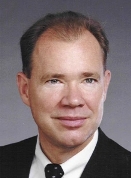What could possibly be more egregious than a government entity using taxpayer dollars to lobby to increase taxes on those taxpayers? It happens. FR friend Jon Coupal, President of the Howard Jarvis Taxpayers Association, tells the story in today’s commentary:

by Jon Coupal, President, Howard Jarvis Taxpayers Association
When the Legislature is in session, the Capitol is awash with millions of dollars worth of lobbying talent. You have never seen so many suits per square yard in your life.
In Sacramento, nothing of importance happens without the involvement of lobbyists. These denizens of the Sacramento political scene are involved in the legislative process from beginning to end. They draft legislation, find sponsors and co-authors, visit legislators and staff, build coalitions and generally engage in serious horse trading to secure passage of bills that are favorable to their clients and to crush those which threaten their clients. During the final debate on bills in either the Assembly or Senate chambers, lobbyists are frequently hanging around just outside these chambers passing a note to a Sergeant at Arms to deliver to a particular member beseeching for just one more meeting to secure a critical vote.
So influential are these hired guns that the lobbying corps is known as the "Third House." The demand for their services is so strong that some lobbying firms represent clients on both sides of the same issue — but more about that later.
So who is it that foots the bill for these millions of dollars of this lobbying activity? Sure, the "usual suspects" — trial lawyers, doctors, oil companies, tobacco companies, the insurance industry — spend tons of cash. But ordinary Californians might be surprised to know that they themselves finance more lobbying — through their tax dollars — than any of these other "special" interests.
How can this be?
The amazing little-known truth is that the biggest spenders of lobbying dollars are local governments, cities and counties — to the tune of a staggering $40 million in the fiscal year just ended.
This is $40 million of taxpayers’ money that could be used to beef up public safety services or to fix potholes that is, instead, put into the hands of private lobbying firms and "in house" lobbyists.
And if you guessed that cities and counties, who are constantly pleading poverty, are not doling out this cash to influence the Legislature to lower taxes, you’d be right.
One of the arguments made by those representing local government is they need this expensive lobbying activity to protect themselves from state government’s tendency to take their revenues. This argument flies in the face of the fact that the voters in 2004 passed a proposition which barred the state from taking from the locals except in extreme circumstances, and even then, it outlines very specific requirements for rapid repayment.
In fact, some of the bills which local governments attempt to influence with our tax dollars seem irrelevant or actually counter to the interests of their constituents. The city of Los Angeles’
lobbying on behalf of drivers licenses for illegal immigrants and against modest restrictions on the use of eminent domain to seize private property, come to mind.
Ironically, according to press reports, outside lobbyists hired by cities and counties sometimes work against them for other clients with competing interests. A bill considered this year that would have phased out the use of Styrofoam food containers was supported by the city of Los Angeles. In opposition were the American Chemistry Council and California Grocers Association. What the city and its opponents on this issue had in common is that they were all clients of the same lobbying firm.
However, at least these lobbying firms, for better or worse, have some accountability to their clients — and local residents, who disagree with the use of their money for highly paid lobbyist, have the option of complaining to local representatives.
Even more offensive to taxpayers is the spending by the California League of Cities, whose lobbying expenditures last year were reported as nearly $2 million. The League, actually a quasi lobbying organization, supports itself through memberships paid by the cities, money originally taken from taxpayers. This puts the League, which is not accountable to any one city, an additional step beyond being accountable to the average citizen who pays its way. Because of this, League officials feel they can became involved in whatever issue they wish with impunity. For example, in 1996, the League took a position in opposition to Proposition 218, the Right to Vote on Taxes Act, and actually spent money in an unsuccessful attempt to defeat a measure that has expanded California residents’ right to vote on local taxes.
Taxpayers rightfully question why local government interests need to spend all this money on lobbying. The majority of legislators already have some local government experience, so it is not as if they have to be educated on local government issues. And of course, the positions taken by local governments are, more often than not, contrary to the interests of taxpayers. When was the last time a city or county lobbied for lower taxes, less regulation or greater property rights for its citizens?
So, when local governments use taxpayer dollars to lobby for greater powers to tax their citizens, this is nothing short of taxpayers having to pay for the bullets fired in their direction.
Care to read comments, or make your own about today’s Daily Commentary?
Just click here to go to the FR Weblog, where this Commentary has its own blog post, and where you can read and make comments.

